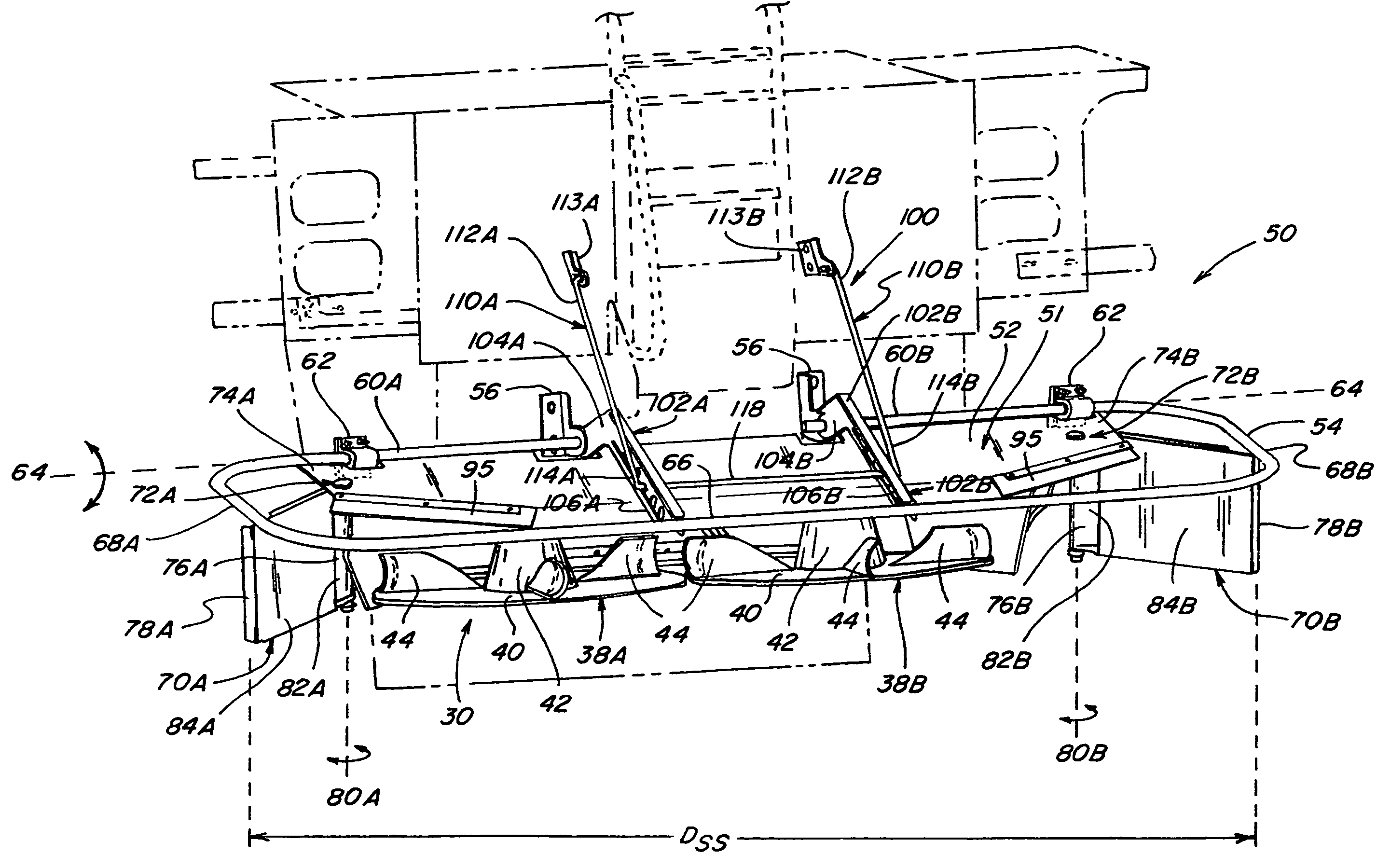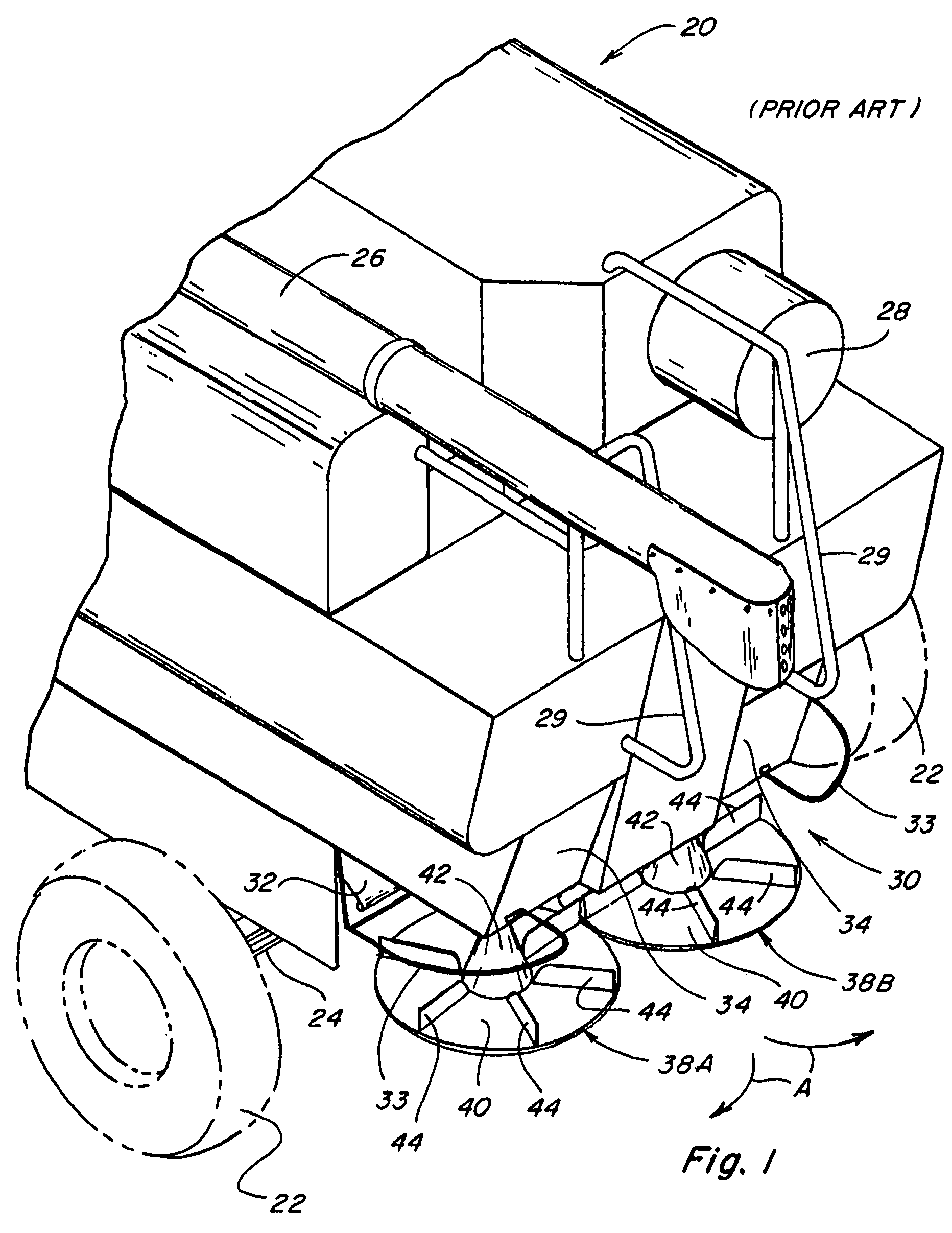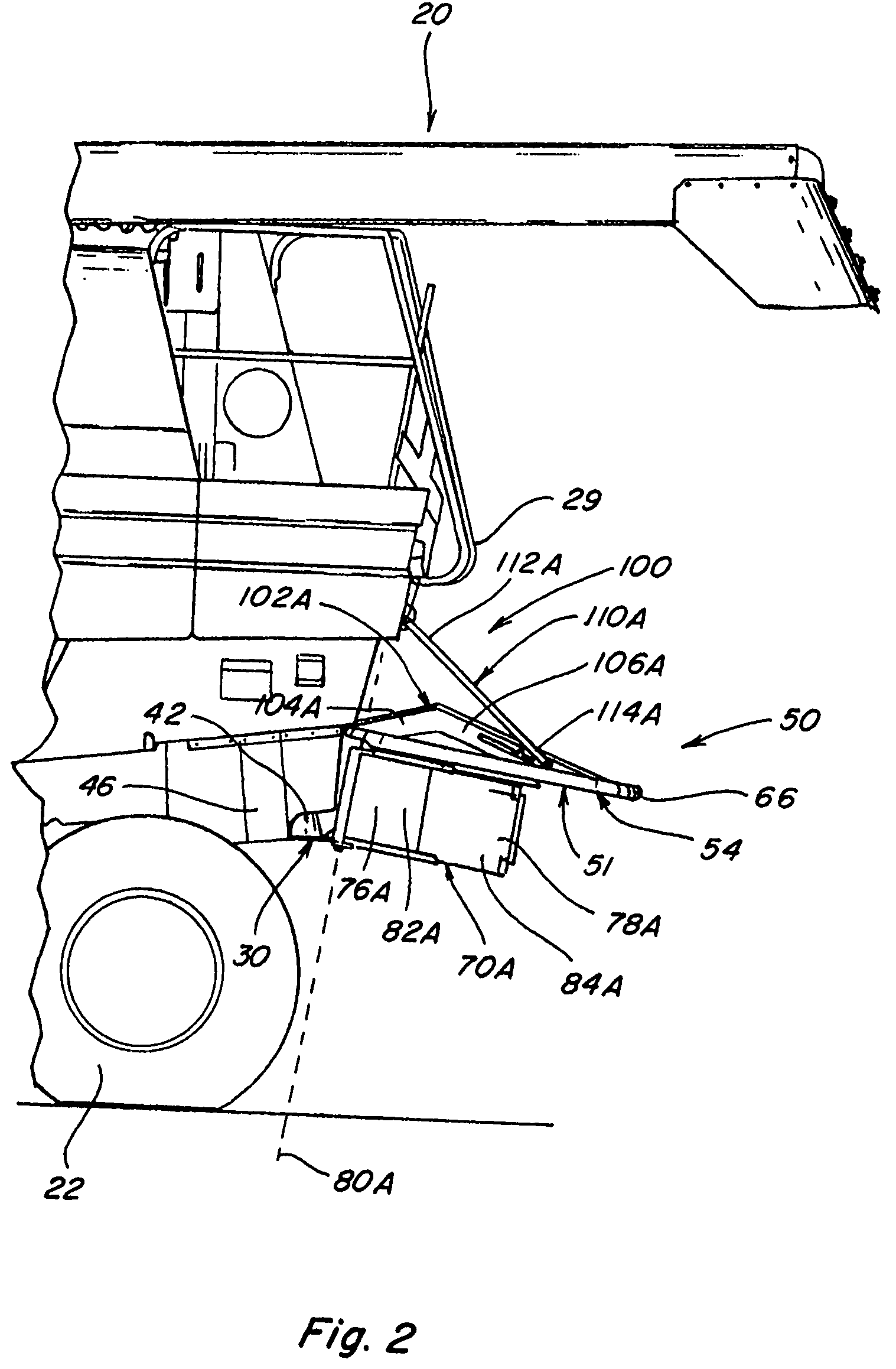Windrow forming construction
a technology of forming construction and windrows, applied in the direction of mowers, agriculture tools and machines, agriculture, etc., can solve the problems of less than ideal windrow formation, increased drying time, and lower positioning of tines
- Summary
- Abstract
- Description
- Claims
- Application Information
AI Technical Summary
Benefits of technology
Problems solved by technology
Method used
Image
Examples
Embodiment Construction
[0033]Referring now to the drawings, wherein like numerals refer to generally like or similar items and wherein certain numerals may be applied on a representational basis to selected, representative items of a class of like items instead of to all of the depicted like items, FIG. 1 depicts the rear portion of a typical combine 20 having a pair of rear tires 22 mounted upon a rear axle 24, with a grain auger or threshing rotor 26, an engine radiator air screen 28, and handrails 29 mounted upon the upper structure of the combine 20. A spreader assembly 30, of well known construction, is mounted generally below a crop residue discharge chute 32. For safety and other purposes, guard bars 33 are mounted extending generally over and across certain more exposed portions of the spreader assembly 30 and removable drive linkage cover plates 34 enclose associated drive linkages. When the threshing rotor 26 is operating, crop residue from such operation is discharged into discharge chute 32 wh...
PUM
 Login to View More
Login to View More Abstract
Description
Claims
Application Information
 Login to View More
Login to View More - R&D
- Intellectual Property
- Life Sciences
- Materials
- Tech Scout
- Unparalleled Data Quality
- Higher Quality Content
- 60% Fewer Hallucinations
Browse by: Latest US Patents, China's latest patents, Technical Efficacy Thesaurus, Application Domain, Technology Topic, Popular Technical Reports.
© 2025 PatSnap. All rights reserved.Legal|Privacy policy|Modern Slavery Act Transparency Statement|Sitemap|About US| Contact US: help@patsnap.com



